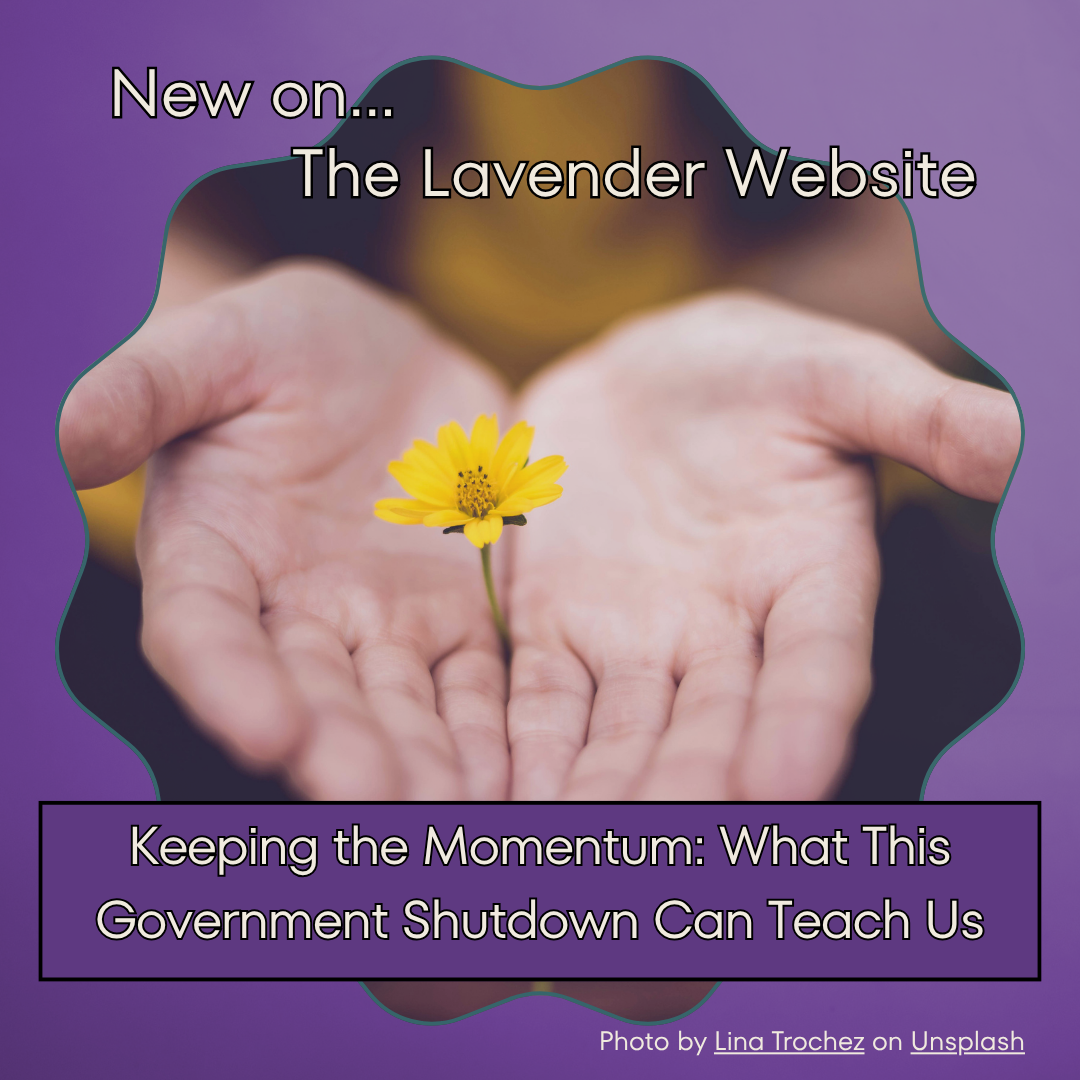Keeping the Momentum: What This Government Shutdown Can Teach Us

By Jada Fulcher
In the last several weeks, we've seen the Champaign-Urbana community step up to support SNAP recipients, left without full federal funding this month. Businesses offered free meals, mass donations were made to places like Eastern Illinois Foodbank, and DIY venues and house shows en masse held food drives; folks of all ages gave what they could to support those in need.
Now, SNAP is likely to be funded again as the government opens back up; but for me, it seems there won't be a getting back to normal. Once again, our lives have been shaken by the audacity of the Trump administration, and its eagerness to let so many of us suffer at their hands. Once again, a piece of security in our lives is traded, for a tragic knowledge… that government, especially our federal government, may not always have our best interests at heart. So, as we consider those interests, and the interests of our community, the big question is: How do we build systems that survive when government fails?
Lead with your heart, and the rest will follow
The community organizations and businesses whose help was felt the most were those who were led by a call to help people first, and figure out the logistics along the way. I spoke with Jenny Shima, owner of the Champaign bookbar/eatery The Literary, and a lot of her inspiration to start offering free meals to SNAP recipients came from that call to help.
"We decided to do this because we love our community, we owe a lot to this community," Shima said. "We are so honored to be a part of this ecosystem, and part of being in an ecosystem is giving back."
Within a week of announcing their free meal program (and the "Community Gift Card" where folks could donate to fund this venture), local donations had already topped ten thousand dollars. It's amazing to see how folks will give their time, money, and effort for a good cause when pointed in the right direction. The Literary is just one of several businesses and organizations that pivoted to supporting SNAP recipients and food insecure community members, and all it took was deciding that they wanted to help. You figure out the rest later, but the biggest part is deciding that you can be an active support for your community. So what comes next?
Decide to keep up the momentum
This is the moment we're in right now. Most of us are used to moments of acute crisis, because those are the big stories. Acute crises happen when you're in that immediate aftermath, and you're feeling all this energy that you have to do something, anything, to make things better for those affected. The thing is, most people aren't fucked over by acute crises; it's the chronic issues that make our lives difficult. It's the cancer diagnosis that will take months of chemo, or the cycle of poverty that makes keeping the bills paid a constant issue. For many people in this area, even with SNAP, food insecurity is a chronic issue. In 2023, according to Feeding America's most recent Map the Meal Gap report, Champaign County had a food insecurity rate of 13.9%. That adds up to 28,680 individuals. If you look at just children, 16.3% are food insecure, — 6,470 kids. So think about that, and then think about how this is based on 2023 numbers. We all know how price hikes for basic necessities like food and housing have every budget stretched these days. So I think it's time for us to take that empathy and have that be our new fuel.
So what can you do on the regular that helps the vulnerable and marginalized in Champaign County? In the world of food insecurity, we can think about how we keep these emergency programs going! The Lit's “Oh SNAP! Menu” idea was awesome, and allowed us to pay it forward to those who needed a meal. We don't need a government shutdown to keep that going! Things like a Community Gift Card would be a great way for us to help businesses support folks who need it. Not to mention, decoupling these initiatives from government programs allows us to support those who don't fall cleanly into government guidelines but still need a hot meal. Sometimes, SNAP doesn't cover all of your food needs. Sometimes, you have to leave a bad roommate situation, and suddenly you can't apply for SNAP, because you don't have a permanent address.
To be honest, applying for government programs like SNAP can be confusing and frustrating, especially if you're unfamiliar with the process. By offering support without a barrier to entry, we allow for everyone in the margins to benefit, and this goes for more than just food insecurity. There is a common fear, subconsciously or otherwise, that if we don't hoard resources for those who are "deserving", then folks who “don't need it” will abuse and overuse that resource. The problem is that everyone is deserving of these things. Capitalism inclines us to move in a state of scarcity and fear, and to prioritize the individual over the community as a whole. But moving from a place of scarcity and fear doesn't allow space for trusting the people in our community. It instills a desire to say no to giving our help, before we even meet a problem. When given the opportunity, however, most people will take what they need, and leave what they can. And hey, if we're proven wrong, then we can pivot from there! But let's not hold back on good work for fear of imaginary bad actors.
So now we know what organizations and businesses should be doing. But what about those of us who just work a regular job and wish we could do more?
Build into and expand local mutual aid networks
Mutual aid is how we survive the uncertainty of government. I describe mutual aid as a type of non-hierarchical support that distributes resources within a community. Folks tend to equate this idea with charity organizations, but mutual aid is a reciprocal process, focusing on building community rather than moving resources through a hierarchy. It's about giving support, and receiving it when you need it too. Because in reality, we all need each other to build up these twin cities we call home. So, start by thinking about what needs you notice around you, struggling to get met. You can chat with people in your apartment building, or folks on your block, or even just friends and other people your age. Once you figure out some common struggle points, then you can try to find a mutual aid network in town already doing this work. This is a great opportunity to use social media and ask around, and some groups will have posts on local forums or websites. Just asking around can help as well; community organizers are not hard to find in this town. If you can't find a trace of a mutual aid group, then you can start one! Remember it doesn't have to be perfect! Lead with your heart and let the rest fall into place. Find some friends or community members who want to help solve a local problem, then do it. We are long past the era of Instagram graphics and prayers. Building a better world is an active choice, not a passive one.
Recap
- Keep the momentum! SNAP coming back doesn't mean there aren't folks that still need help!
- For those running local businesses and orgs: Keep up with the initiatives you introduced with this shutdown. Keep the Community Gift Cards and the foodbank donations and the opportunities for you and your patrons to support people through your business. There is a level of access that businesses and orgs have that the average person just does not, be it a kitchen, or access to easy bulk ordering, or just the capital to buy a bunch of stuff even if you will be reimbursed later. Help us help our community!
- For everyone else: Join or start a mutual aid group! Talk to your friends and neighbors and just help people. Whether it's driving folks to doctors appointments, or watching your neighbor's kids so they can go to work, there are SO many small ways we can make a positive change in people's lives. It just takes being a little organized and working together, and we can truly do so much.
